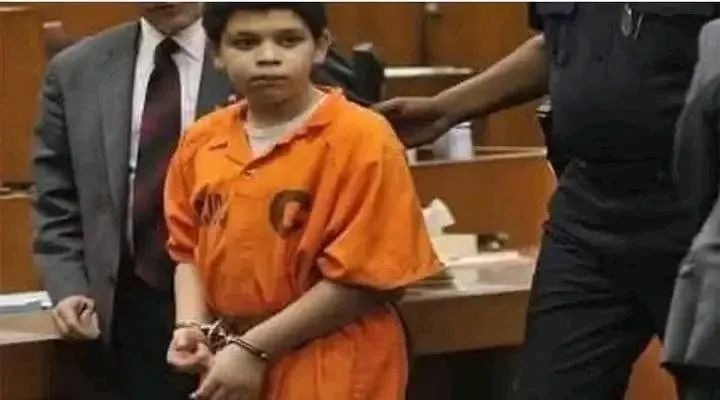The United States has one of the highest incarceration rates in the world—and among those behind bars are at least 79 children under the age of 14 serving life sentences without the possibility of parole.
This troubling statistic, reported by organizations like Human Rights Watch and the Equal Justice Initiative, has sparked renewed debate over the American juvenile justice system and whether sentencing minors to die in prison violates fundamental principles of fairness and human rights.

The cases behind the numbers are complex and often heartbreaking. Some of these minors were convicted of murder during burglaries; others were sentenced for their involvement in crimes where they didn’t directly harm anyone—or even carry a weapon. Many come from marginalized communities plagued by poverty, domestic violence, systemic racism, and neglect.
One of the most well-known cases is that of Lionel Tate, who was arrested at age 12 after the death of a 6-year-old girl during a roughhousing incident that mimicked pro wrestling. Although his sentence was eventually reduced, his case ignited a national conversation about whether children should be tried—and punished—as adults.
“Life sentences for children violate the most basic principles of justice and children’s rights,” said Juan Méndez, former U.N. Special Rapporteur on Torture. “Kids are still developing emotionally and mentally. Locking them up for life denies them any chance at rehabilitation or redemption.”
Still, many prosecutors and judges argue that some crimes are so serious that they justify the harshest penalties—even for young offenders. States like Florida, Michigan, and Pennsylvania lead the nation in sentencing children to life without parole.

The U.S. Supreme Court has weighed in on the issue, ruling in 2012 that mandatory life sentences for juveniles are unconstitutional. Four years later, the Court said that decision must be applied retroactively. But despite those rulings, many cases have yet to be revisited.
Civil rights groups continue to push for change. They’re advocating for alternatives like restorative justice, youth-focused rehabilitation programs, and periodic reviews of long-term sentences.
“Childhood should be a time for growth and second chances—not a permanent prison cell,” said Bryan Stevenson, founder of the Equal Justice Initiative. “When we sentence a child to die in prison, we’re saying they’re beyond hope. That’s not just morally wrong—it’s scientifically and psychologically unsound.”
As Americans continue to grapple with issues of crime, punishment, and redemption, the fact that dozens of children are serving life sentences without parole raises serious questions about what justice really looks like—and how we treat the most vulnerable among us.





